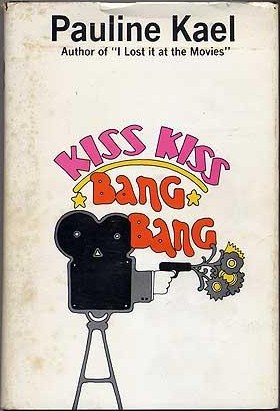 I should apologise for the paucity of posts, and film-related posts in particular, of late. The irony is that a big part of the reason is film-related thesis work (it will be a shame when I lose that all-purpose, reasonable-sounding excuse for not writing more often.)
I should apologise for the paucity of posts, and film-related posts in particular, of late. The irony is that a big part of the reason is film-related thesis work (it will be a shame when I lose that all-purpose, reasonable-sounding excuse for not writing more often.)
I did want to briefly break my silence, however, to highlight the slew of good writing that has been appearing online about Pauline Kael. The publication this week of a new anthology of Kael’s work (The Age of Movies: Selected Writings of Pauline Kael) as well as a new biography (Brian Kellow’s A Life in the Dark) has lead to a flood of re-evaluatiuons of the critic. The first I saw was this one by Nathan Heller at the New Yorker, but then followed Camille Paglia and Jim Emerson and Frank Rich and Dan Callahan and Armond White and “The Siren” and Andrew O’Hehir and Matt Soller Zeits.
It’s an embarassment of riches, and the there is, predictably, a lot of overlap in these pieces. Nevertheless, I urge you to have a look at them if you are at all interested in film criticism. I wrote my own piece on Kael a few years ago – here – and not having read the two new books don’t have much to add to what I wrote back then. And most of what I would add has been said better somewhere else by one or other of these writers. (It is hard, however, to imagine that the new anthology is better than the incredible For Keeps, published back in 1996).
The main new observation that struck me while reading these articles is that the arguments about Kael have settled down somewhat: I guess now that she’s been off the scene so long, there’s no sense that she endangers anybody anymore, so the vitriol that some directed at Kael has largely evaporated. The odd standout was Armond White’s piece, but that was due to his characteristic crazy anger about the death of criticism, which I think is misdirected. As I said in my original Kael piece, there’s loads of great film criticism happening on the internet (this may, in fact, be looked back on as a golden age of criticism). What’s gone is the age where one voice could have such purchase. I can understand why that might infuriate someone like White, notorious for his messianic desire to convert others to his contrarian worldview, but I don’t think it amounts to the cultural tragedy he sees.